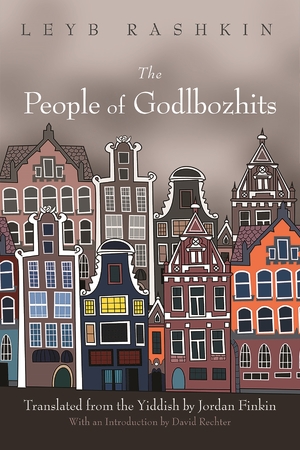"In cogent and evocative prose, translated from the Yiddish by the author, Rosenfarb describes the religious and politicial stew that was prewar Poland."—Publishers Weekly
"A vivid story of life in a shtetl in the title village during the years immediately preceding WWII; specifically, it’s a dramatization of the ethnic and religious traditions that form the characters of its winning protagonists, gentle Yacov and his beloved Binele. But the [book’s] great character is Yacov’s resourceful mother, Hindele Polin, a crafty widow whose hard-earned wisdom and plucky survival skills make her a worthy successor to the villager heroines of Sholom Aleichem’s fiction."—Kirkus Reviews
Description
In Bociany, Rosenfarb offers completely absorbing portrayals of Jews and Christians from several walks of life in the shtetl. Her primary characters are the scribe’s widow Hindele, her son Yacov, the chalk vendor Yossele Abedale, and his daughter Binele. Jewish relations with neighboring Catholics are generally civil, if complicated. Despite living next door to a convent, Hindele finds the nuns’ behavior implacably alien.
Rosenfarb establishes an indelible sense of place, evoking its charm and the shtetl residents’ ease with the natural world. Her vivid characters and portrait of the preurban, pre-Holocaust world ring true. Yet even in isolated Bociany, new ideas—socialism, Zionism, Polish nationalism, secularism—begin to challenge the shtetl’s traditional agrarian and mercantile economy.
About the Author
Chava Rosenfarb was born in Łódź, Poland. She was a survivor of the Łódź Ghetto as well as the Auschwitz and Bergen-Belsen concentration camps. She was the recipient of numerous literary prizes. In 1979, she was awarded the Manger Prize—the highest award for Yiddish literature—for her trilogy Tree of Life (Der boim fun leib).
October 2024




